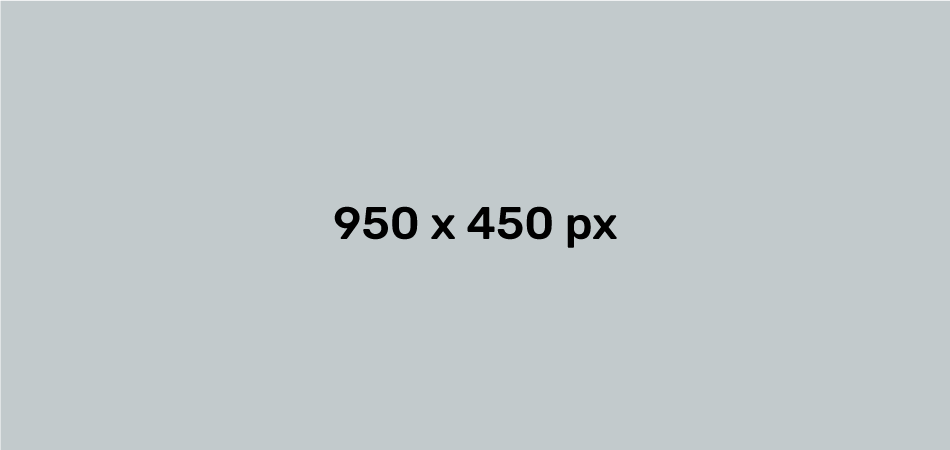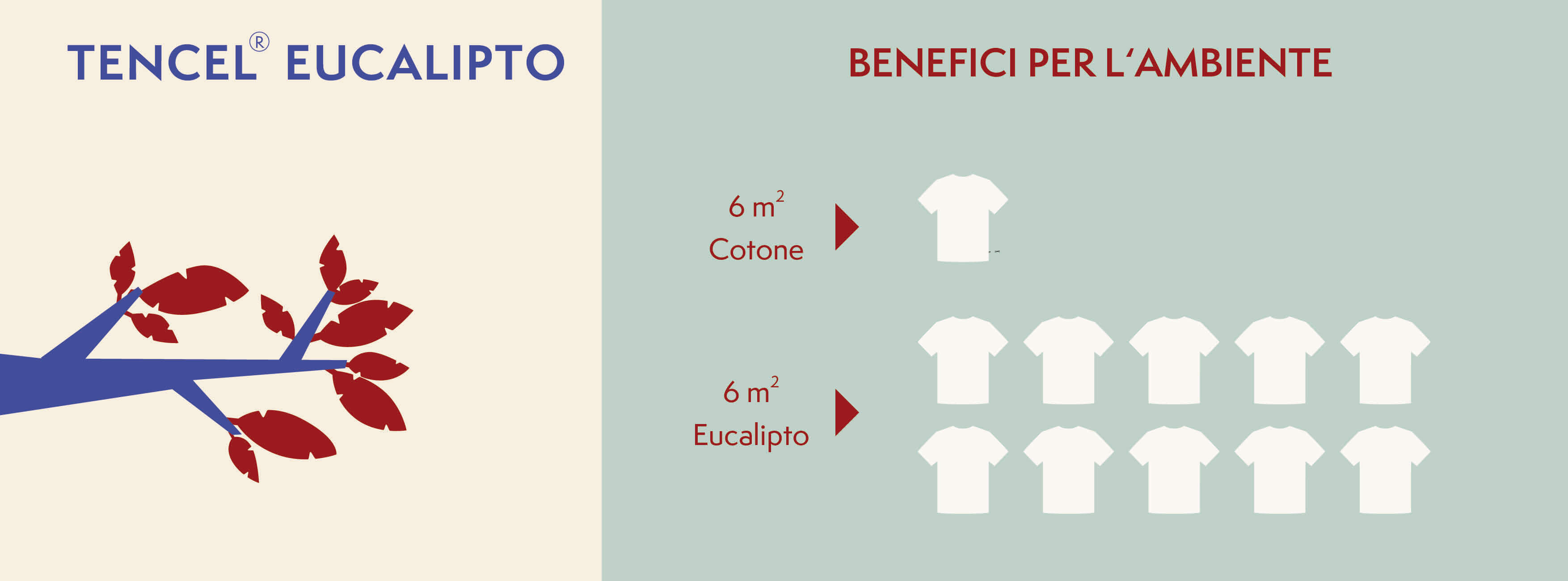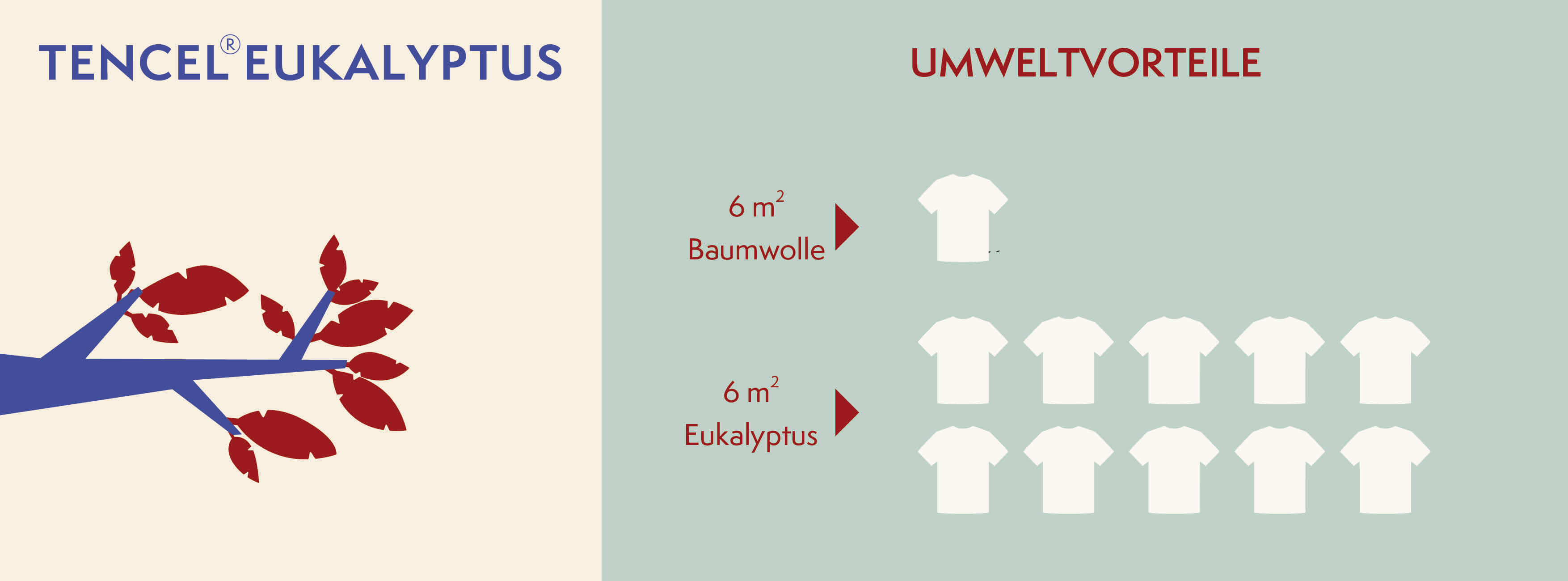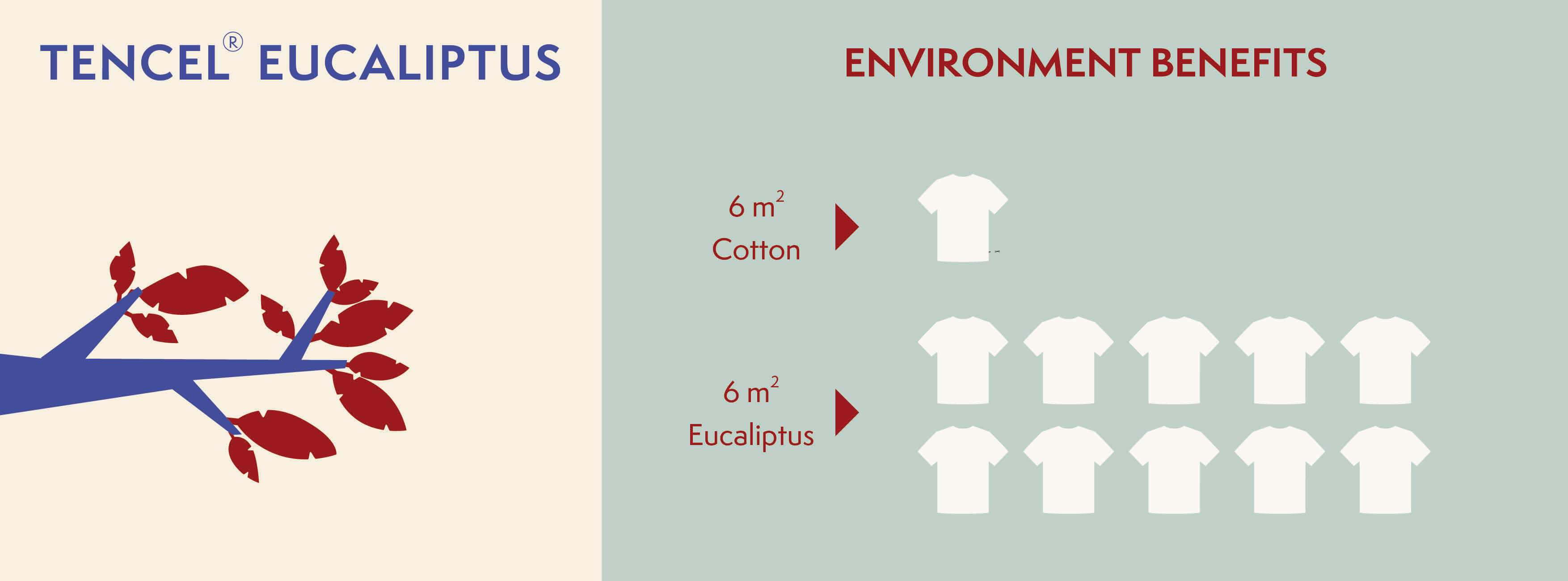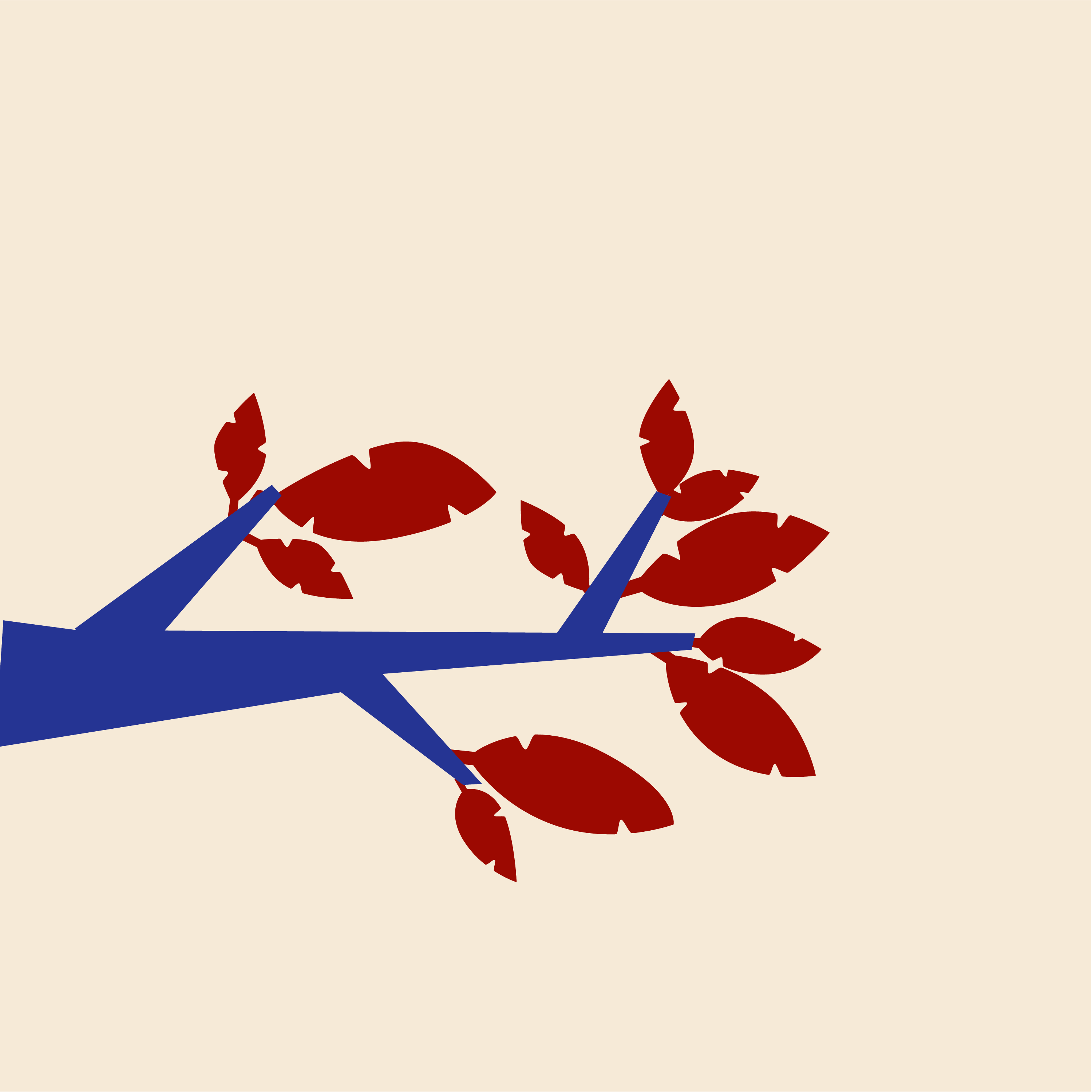
Highly breathable and anti-bacterial: eucalyptus fiber alias Lyocell Tencel
Eucalyptus (TENCEL™) has the same benefits as Bamboo. It grows very fast (up to 20 meters in only 6-7 days) and doesn’t need pesticides, insecticides, or any other chemicals, such as herbicides or fertilizers. Water consumption is minimal (up to 10-20 times less than that for cotton) and artificial irrigation is not required (rainwater is enough). The production yield of eucalyptus is ten times higher than the one of cotton. TENCEL™ T-shirts can be produced with a Eucalyptus plantation of six square meters whereas the same ground space yields only one T-shirt. The eucalyptus used by CORA Happywear comes from different European countries. However, it grows in areas that are not allocated for other cultivations and at no expense of food production.
The extraction process of eucalyptus fibre is quite similar to the bamboo one. For its production, CORA Happywear chooses a eucalyptus fibre from Lenzing - the TENCEL™ - which is obtained through a very sustainable process. The eucalyptus tree wood is smashed to get the pulp, which is processed through multiple steps. The first one is dipping it in a solution of water and N-methylmorpholine-N-oxide (being less damaging, it replaces the sulfuric acid). This step is done in order to obtain the so-called viscose, which is then pressed on paper-thin nozzles and dipped into a basin filled with a solution of water and N-methylmorpholine-N-oxide. This hardens the viscose and turns it back into pulp from eucalyptus.
Eventually, the fibres are spun to obtain yarn. This process is completely sustainable and beneficial to the environment: the solvents and water used in the process are 100% recovered and reintroduced into it (closed-loop process).
ENVIRONMENTAL BENEFITS
Rapid growth, no use of water or fertilizers.
The eucalyptus is a tree which grows very quickly (up to 20 meters in just 6-7 years). It originally comes from Oceania but has been cultivated in Europe for several centuries as well. We usually first associate it with honey or with the fantastic balsamic effects of the essential oil obtained from its leaves.
We use the pulp of the wood to produce textile which is exceptionally soft for our skin.
One advantage of eucalyptus plantations is that they do not require the use of chemicals such as pesticides, herbicides, insecticides or fertilizers.
Low water consumption.
Growing eucalyptus is a rather simple business. They are long-lived trees, simple, easy to propagate and extremely easy to care for.
The eucalyptus adapts very well to any type of soil, even to the most difficult ones. The great advantage from an ecological point of view is that the eucalyptus can be planted in dry lands. Therefore it does not take up space for food crops. In ancient times the eucalyptus was used when marshland needed to be reclaimed.
For us, the fact that the eucalyptus plantations do not require irrigation systems but can grow with natural, even scarce, rainfall is a very important added value.
Production process with very low environmental impact.
The eucalyptus tree is very robust. In summer it produces small white or green feathery firs that turn into round fruits containing seeds.
The eucalyptus gives off a fresh and typical aromatic smell. Thanks to this smell, it is not attacked by parasites usually. On the contrary, eucalyptus keeps mosquitoes away. The nature of this fantastic tree therefore makes the use of pesticides obsolete.
10 times more yield than cotton.
The eucalyptus fiber is obtained from the pulp of the wood. It has a very high yield. With 6 square meters of eucalyptus, 10 t-shirts can be made. On the other hand, 6 square meters of cotton are needed to make only one t-shirt.
We all know by now that the environmental impact of cotton production is considerable. It is a fact that cotton needs a lot of space which nowadays should be devoted to food production. The water consumption of cotton is very very high. In fact, one cotton t-shirt is made with 2000 liters of water.
The fibre obtained is biodegradable.
All types of fiber with the TENCEL™ Lyocell and Modal brand - both used in CORA Happywear products - have been certified as biodegradable and compostable under industrial, domestic, soil, freshwater and marine conditions, so they can fully return to nature.
uSER BENEFITS
Discover our clothes in eucalyptus fibre:
